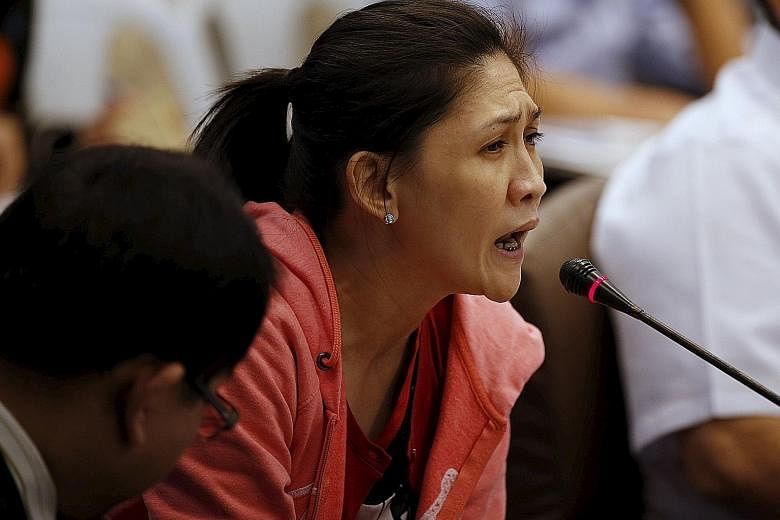The Philippines' top finance officials and lawmakers yesterday sought to contain the fallout from a massive heist that has exposed a banking system plagued by loopholes exploited by money launderers and hackers.
Central bank governor Amando Tetangco said the Philippines faces risks as questions arise over its ability to stop the flow of "dirty money" following a cyber theft that saw some US$81 million (S$110 million) worth of Bangladesh's money land with the nation's sixth-largest bank.
On Feb 4 and 5, hackers, using malware, attempted to steal some US$1 billion from accounts held by Bangladesh's central bank in New York and move the money to banks across the globe.
The cyber attack, however, tripped alarms. A typographical error in one request sent by the hackers to a bank in Sri Lanka was said to have triggered red flags.
But the attackers managed to wire US$81 million to four dormant accounts held at a Manila branch of Rizal Commercial Banking Corp (RCBC). The money was then consolidated into a single account under the name of a local retail tycoon.
From Feb 5 to 9, the branch's manager, Ms Maia Santos Deguito, despite a notice from regulators in New York and a stop-payment order from RCBC's head office, transferred nearly all the money to a remittance firm that then distributed it to two casino operators and a middleman who takes Chinese highrollers to casinos.
From there, the trail went cold.
In Dhaka, meanwhile, cyber security expert Tanvir Hassan Zoha has gone missing days after he said officials at the central bank bore some responsibility for the audacious theft. He had been helping the government investigate the crime. His wife said he was picked up on his way home from work on Wednesday night.
In Manila, Mr Tetangco told reporters: "There's risk associated with this... We need to address that. We have to show that action has been taken."
Senator Teofisto Guingona, who is leading a congressional probe into the heist, said the Philippines could wind up on a Paris-based money-laundering task force's blacklist.
That, in turn, could put the country's credit rating, which has been upgraded to investment-grade from junk, at risk, he warned.
Mr Tetangco said the Philippines' "very strict" bank secrecy laws may have to be relaxed as they have, at times, hampered efforts to stop the flow of money from corruption, drugs, tax evasion, hacking, and other illicit sources.
There has also been growing clamour to subject casinos to anti- money laundering regulations and require them to report suspicious money transfers and other transactions.
Mr Astro del Castillo, managing director of investment firm First Grade Finance, told The Straits Times: "It's quite a stretch to call the Philippines a laundromat for the world's dirty money. As long as the government can show that it is doing something, I don't see the banking system's image being harmed in the long run."


